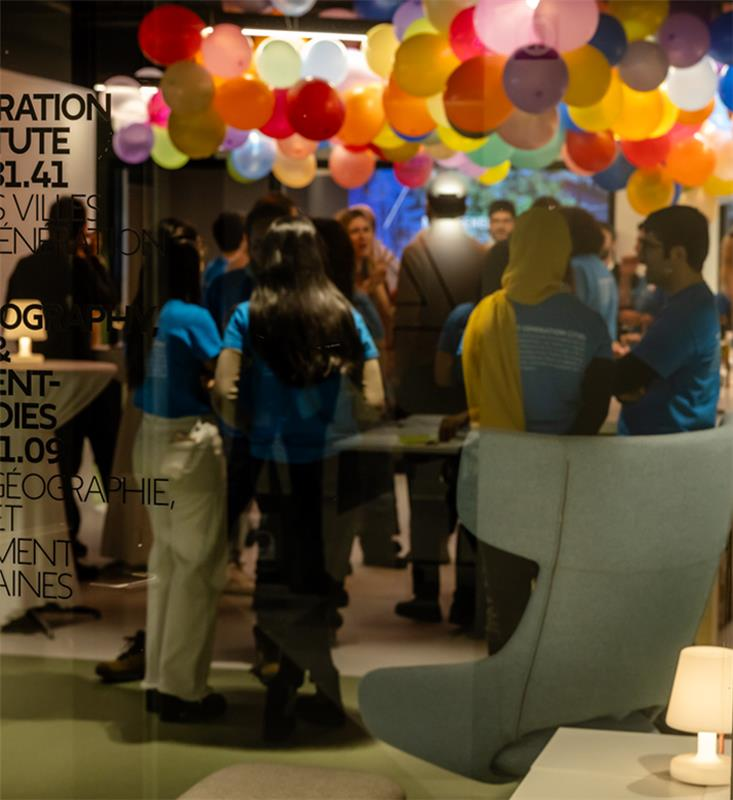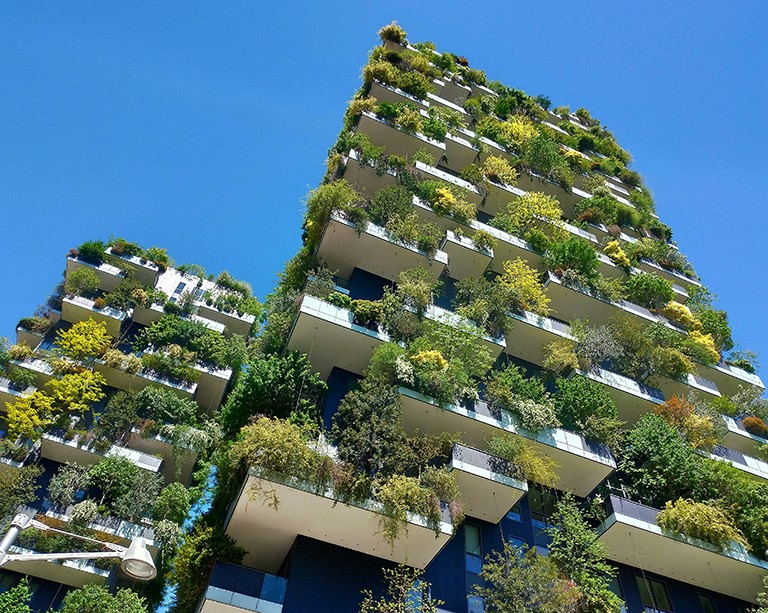TRANSDISCIPLINARY COLLABORATION TO SHAPE SUSTAINABLE URBAN DEVELOPMENT

Concordia has emerged as a world leader in next-generation cities exploration and expertise.
The university’s Next-Generation Cities Institute leverages the combined strength of our cities research capacity to enhance collaboration, communication, education and interaction within our community. The institute brings together researchers from a range of disciplines including engineering, economics, natural sciences, the arts, humanities and the social sciences to engage in an inclusive and universal approach to sustainable urban development.
The Next-Generation Cities Institute:
- Is home to the Canada Excellence Research Chair (CERC) in Smart, Sustainable and Resilient Cities and Communities
- Assembles transdisciplinary knowledge and resources from more than 200 researchers and 14 research centres
- Serves as a model for international, publicly engaged research and learning
- Tackles some of society’s biggest challenges, including:
- Sustainability transformation
- Zero-carbon cities and buildings
- Resilient communities
- Digitalization, cybersecurity and AI
- Climate change and preserving natural ecosystems
- Education and strengthening environmental consciousness with the help of art and design
- Transportation and mobility
Meet the people behind the Institute
What is a next-generation city?
Next-generation cities are inclusive, connected, collaborative, ecological, healthy and mobile.
A next-generation city has transformed towards a sustainable zero-carbon infrastructure and focuses on inhabitants’ quality of life and their relationships. It encourages engagement and collaboration between all affected stakeholders to ensure that urban communities are empowered, resilient, prosperous and equitable.

Why is it important?
- More than half the world’s population lives in cities today and will reach 75 per cent by 2050
- Cities, with their high density, can be the most sustainable form of human development, are loci of innovation and productivity, and are essential drivers for sustainable future development
- The world’s largest 600 cities hold 22 per cent of its population — yet produce more than half of the GDP
- Cities occupy three per cent of the Earth’s land yet account for 60-80 per cent of energy consumption and 75 per cent of carbon emissions

- Zero-energy buildings and neighbourhoods
- Smart, sustainable and resilient infrastructure
- Sustainable water and energy systems
- Arts-driven research creation
- Art Hives and performative urbanism
- Cybersecurity and Internet of Things
- Design practices and the built environment
- Climate awareness and action
- Transdisciplinary methods in research and education
- Innovative construction and infrastructure engineering
- Mobility services and sustainable transportation

Associated centres
The Next-Generation Cities Institute groups more than 200 talented Concordia scientists, scholars, thinkers and creators from across our four Faculties into three research clusters:
- Built and Natural Environments (BAN)
- Mobile, Secure and Sharing Cities (MSS)
- Design, Art, Culture and Community (DAC)
News
Events
“Neighbourhoods and cities of the future should be more than smart — they need to be places where people can live and thrive.”
— Ursula Eicker, Canada Research Chair in
Smart, Sustainable and Resilient Communities and Cities







